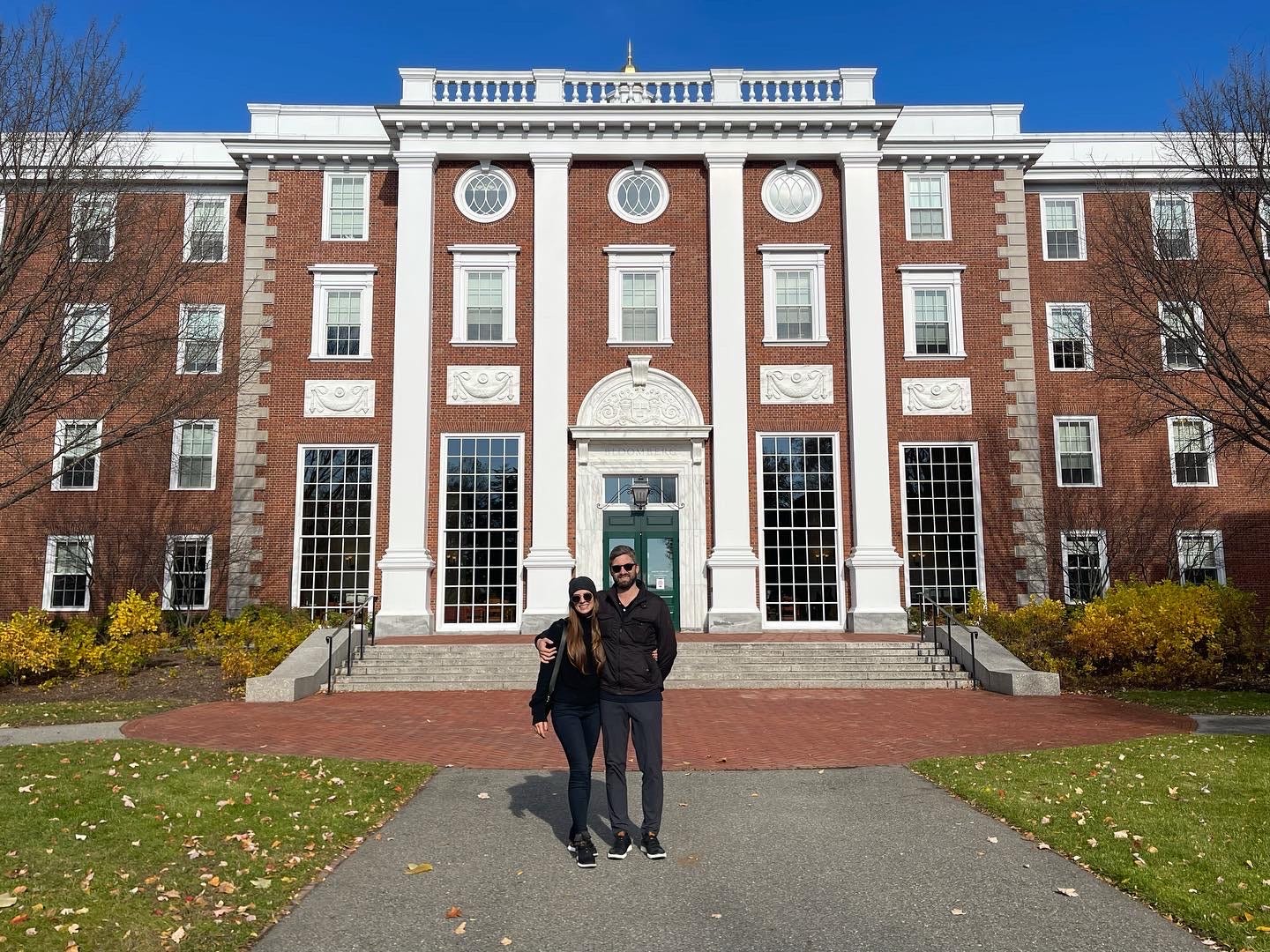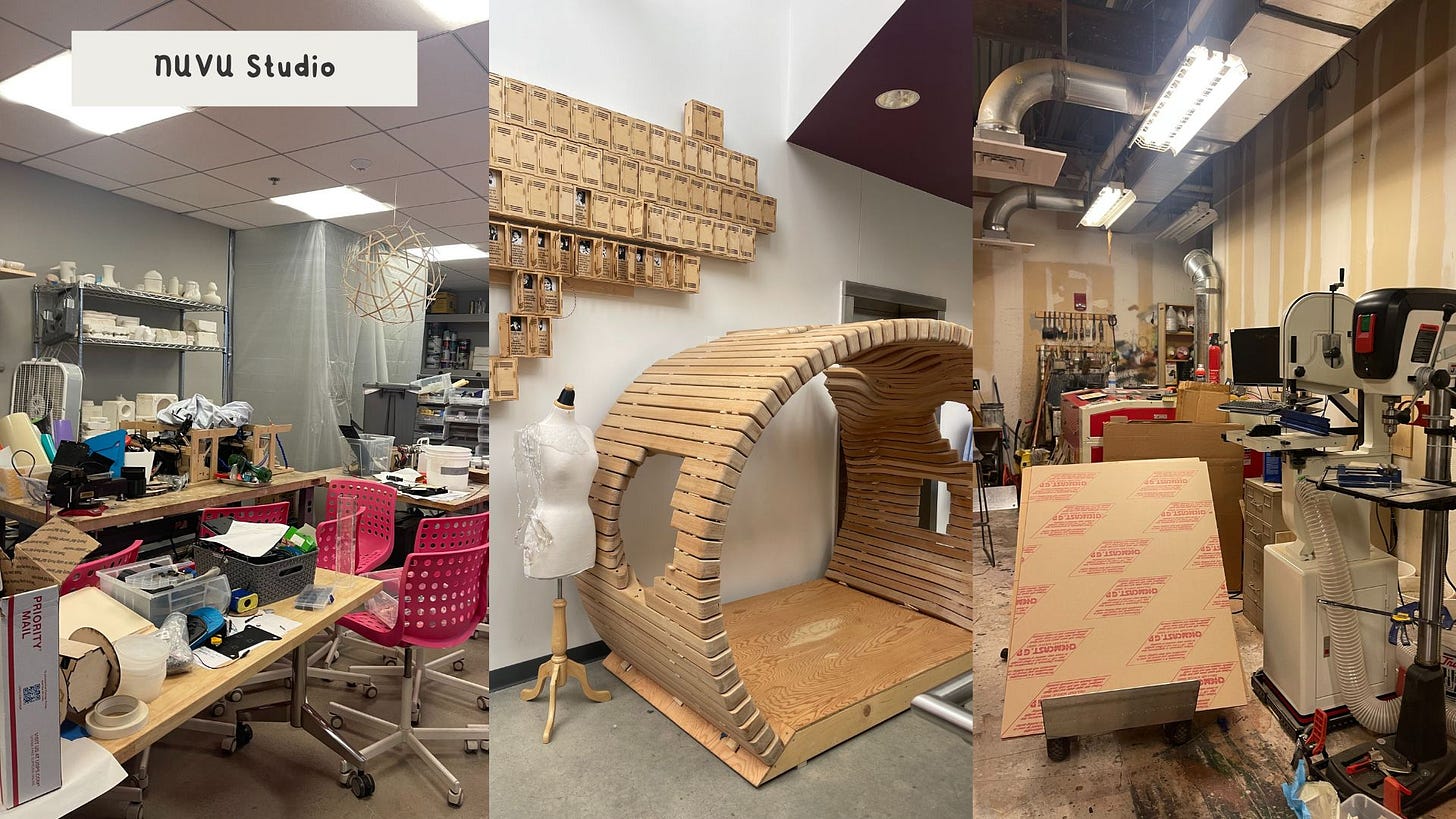Fab Fridays 100: How to Manage Screen Time
Kids spend more time on screens today than ever before. Do they lack self-control? Or are deeper factors at play?
Hey Everyone!
Happy Friday and greetings from Boston.
This week I’d like to share my latest YouTube video on The Psychology of Screens. This has been one of my most viewed and shared write-ups, so I decided to turn it into a video that is hopefully entertaining and informative.
Many parents worry that their kids are spending too much time on screens. Do they lack self-control? Or are deeper factors at play?
Watch this video to learn how to manage your kids' screen time.
If you find this video useful, please like and share it with any parent facing similar issues. Thank you!
The Socratic Method
I’m in Boston this week for my husband’s five-year MBA reunion (+ 2 year COVID delay) and it feels great to be back. Harvard Business School is a magical place, with beautiful architecture, history in every corner, and some of the most interesting people I’ve ever met.
One of my favorite things about HBS is their case-study approach to education. Other business schools use lectures, where professors tell students different frameworks and theories for them to memorize. But HBS does things differently. Over the two-year MBA program, students read over 500 cases about real-life business problems. Professors then challenge students to share how they would lead or advise the companies and their leaders.
HBS professors use the Socratic method, a teaching technique going back to the ancient Greek philosopher Socrates. Instead of telling his students the answers, he forced them to clarify their ideas, question their assumptions, and back up their ideas with evidence. These questions force students to think for themselves. As a result, graduates of HBS are much better prepared to make hard decisions.
“How do you go into an ambiguous situation and get to the bottom of it? That skill – the skill of figuring out a course of inquiry, to choose a course of action – that skill is a relevant today as it was in 1921.” — Jan Rivkin, Senior Associate Dean Chair & MBA Program
We use a similar approach at Synthesis. Instead of lecturing students, we challenge them to dive into ambiguous situations through our simulations. They practice making difficult decisions, like the right way to manage wildfires, curate art collections, and colonize space. The rules aren’t clear—they have to learn through trial and error. And after each session, our teachers guide them to reflect on their experiences through Socratic questions.
Similar to HBS grads, our students are better equipped to think for themselves and make decisions in the real world because they have some experience under their belts.
NUVU Studio
I also had the chance to visit two schools while here in Boston: The Learning Project, a small private school in the Back Bay area where I worked as a first and third grade teacher seven years ago, and Nuvu Studio.
It was fascinating to see the contrast between the two schools: The Learning Project is more traditional, while Nuvu Studio is at the edge of innovation.
Nuvu is a hands-on, studio-based high school for young designers, entrepreneurs, makers, and inventors. That’s right, my kind of place! Students grades 8-12 immerse in interdisciplinary projects, called “studios,” where they learn how to navigate open-ended problems, collaborate effectively, and communicate their ideas using a variety of media. Similar vibe to Synthesis, but in person.
My favorite thing about the school was all the “chaos” that signaled there was learning going on. The projects displayed around the school were evidence of the amount of agency students have over their learning.
A few other things I liked:
The teachers at NUVU (called coaches) get to experiment with ideas without parameters and push the boundaries of education to see what works and what makes kids “tick”. They are constantly trying new things and open to anything! It was very refreshing to see.
Students that go through the Nuvu program acquire the skill of “figuring things out.” When they see something they’ve never approached before, they are more willing to dive in and figure it out. This is such a fundamental skill for any job now a days and it’s an acquired skill that needs to be taught. We do it at Synthesis as well!
Unlike traditional school, kids at Nuvu are not interrupted every 45 minutes to switch subjects. They get to immerse in their learning experience and integrate all subjects as they work through real problems.
Nuvu has an initiative called NuvuX where they partner with schools around the world to bring their pedagogy and creative curriculum to kids all over the globe. For example, they have partner schools in Scotland, England, Hawaii, Turkey, Saudi Arabia, and more. If you are interested in partnering with them, make sure you reach out to them!
Nuvu is the example of the kind of creative and entrepreneurial education every kid deserves. An inviting place, focused on innovation and hands-on learning, where kids get to tinker, experiment, and bring their ideas to life. It’s never too early for kids to get started with entrepreneurial projects. They can have a huge impact on their communities and the world through their work and ideas.
A special thank you to Rob MacDonald, Director of Academics at Nuvu, for inviting me to this fascinating place.
If you work at an alternative school like Nuvu, let me know! I’d love to learn about it and perhaps visit sometime.
Until next time,
Ana Lorena Fabrega





